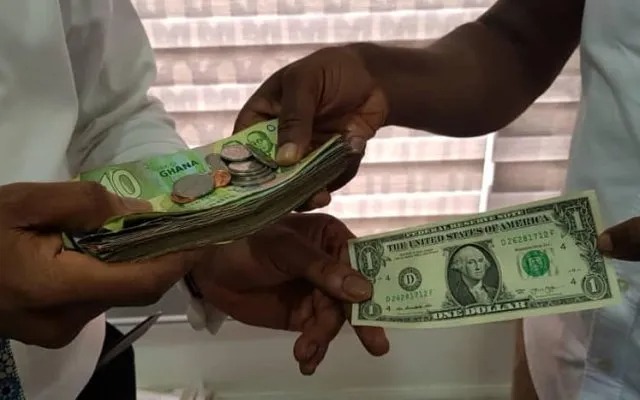
Audio By Carbonatix
Professor Godfred Bokpin, an economist and finance expert, has attributed part of the Cedi’s depreciation to the International Monetary Fund’s (IMF) programme with Ghana.
He said that under the IMF programme, the Central Bank was barred from intervening in the currency exchange market when the Cedi fell against major trading currencies.
That situation prevented the Bank of Ghana (BoG) from entering the foreign currency market to stabilise the Cedi.
Prof. Bokpin made the comment on a local radio station that was monitored by the Ghana News Agency (GNA) over the weekend.
“Part of the reason why the cedi is depreciating is also consistent with the latest IMF-supported program. Under the IMF-supported programme, they favour a stable exchange rate.
“This limits the ability of the central bank to be in the market and fight off the depreciation through our reserves.
“Part of the IMF programme is to build our reserve of three months of import cover for 2026…What that means is that it ties the hands of the central bank to intervene in the market to sell dollars to stabilise the cedi.
“Now they cannot do that under an IMF programme,” he said.
In May 2023, the IMF Executive Board approved a US$3 billion External Credit Facility (ECF) with Ghana for 36 months.
Prof. Bokpin also identified other factors that have influenced the cedi’s recent depreciation.
He said that the cedi’s depreciation was also triggered by the delayed foreign debt restructuring, which affected the receipt of the third tranche of the ECF under the IMF programme.
The IMF has indicated that it would transfer the third tranche of $360 million, notwithstanding Ghana’s inability to negotiate a final debt agreement with its official bilateral creditors.
Mr. Charles Kusi Appiah Kubi, a representative of the Ghana Union of Traders Association (GUTA) and a panellist on the discussion, suggested the prioritisation of retention policies to stabilise the cedi since multinational companies would be barred from repatriating profits.
Dr. Kwabena Nyarko Otoo, Director of Research for the Trade Union Congress, also encouraged the Central Bank to address the “open” trade of foreign exchange in Ghana, particularly the black market, to relieve pressure on the cedi.
Latest Stories
-
JOY FM rolls out “Safari Experience” — a refreshing Ghana Month escape into nature, culture and connection
1 hour -
Ghana loses over GH¢4.5bn annually to traffic congestion, new study on urban mobility shows
2 hours -
ADB unveils new corporate cloth, determines to dominate industry
2 hours -
Peak Milk extends Ramadan support following courtesy visit to national Chief Imam
2 hours -
No solo bid for Ken Agyapong — Joojo Rocky Obeng dismisses ‘third force’ calls as politically ridiculous
2 hours -
Today’s Front pages: Friday, February 13, 2026
3 hours -
5 arrested for open defecation at Osu Cemetery
3 hours -
A Home that Travels: How the Diaspora carries Pan-Africanism across borders
3 hours -
Obituary: Hon. Stanley Basil Bade Carboo
3 hours -
Government to absorb COCOBOD’s $150m losses as Cabinet directs immediate cocoa purchases – Finance Ministry
3 hours -
Mpraeso MP demands immediate probe and arrest over alleged exploitation of young Ghanaian women
3 hours -
‘No bed syndrome,’ and how a hit-and-run victim was refused emergency care by Ridge, Police, Korle Bu hospitals for close to 3 hours before he died
3 hours -
Give Love a second chance on Valentine’s Day – Counsellor Perfect
4 hours -
GSS generates the numbers that drive national development – Government Statistician Dr Iddrisu
4 hours -
We are not policy advisers, we generate the data – Government Statistician clarifies GSS’ role
5 hours

